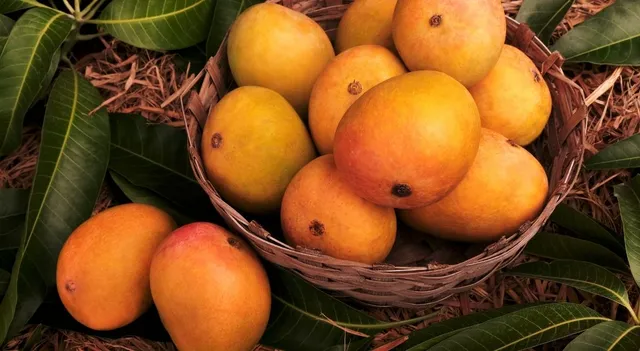- By Ridam Sharma
- Tue, 09 Sep 2025 07:46 PM (IST)
- Source:JND
National Fruit of India: The mango is India's national fruit and is lovingly known as the King of Fruits across the globe. The fruit has its unique place in Indian tradition, culture, economy and varied cuisines. In 1950, Mango was established as the national fruit of India, symbolising its rich agricultural history along with social and historical dominance as one of the most favourite fruits of the nation of billions. Let’s learn more about mango, from its significance to usage.
Traditional Significance Of Mango
The mango has almost always been a part of India’s rich heritage. The mango leaves have always been a part of Hindu religious rituals, weddings, and festivals as a symbol of prosperity, success and good luck.
Also Read: Most Expensive Mangoes In India: This Variety Costs Up To Rs 3 Lakh Per Kg
Geographical Significance Of Mango
India contains more than 1,000 varieties of mangoes and is the largest producer of mangoes in the world. Some of the most popular varieties of mangoes in India are Alphonso in Maharashtra, Dasheri in Uttar Pradesh, Langra in Bihar, Banganapalli in Andhra Pradesh, and Kesar in Gujarat. The best thing is, each of these varieties tastes different, smells different, and feels different, and people all over the country love them.
Famous Mango Dishes Made In India
Across India, mango is consumed in several ways, from fresh sliced fruits to tasty pickles, chutneys, juices, and classical desserts like aamras and aam panna. Its versatility is one of the major reasons for its popularity in the nation of billions.
The mango is not just a fruit in India; it is a cultural symbol. From mango's religious significance to modern cuisine fusion, the king of fruits is loved by people of all generations in India. All thanks to mango's rich heritage and worldwide popularity, it has become the national fruit of India.

